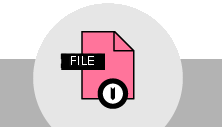
Community Technology
Overview
Community technology is a principled approach to technology projects that places value on equity, participation, common ownership and sustainability. It is an alternative vision of technology in which communities and neighborhoods have direct control over their digital communications, allowing for greater self determination and power over our shared digital voices.
To achieve that end, community technology projects use practices of
- Mutual learning that encourages practice and action, investigation and listening.
- Participatory planning and collaborative design.
- Collective self-governance.
Using this collection of activities, participants can start to define community technology in their context and investigate how the local digital ecosystem can be remade more healthy and just. The modules were informed and inspired by the Detroit Digital Stewards project. The activities are introductory and meant to initiate conversations and exploration.
Activities
- Who Owns Our Technology?: Who controls and profits from our technologies? Investigate how technology impacts our communities, and identify community-based alternatives.
- Develop Digital Justice Principles: How do we define digital justice in our communities?
- Getting to know the Detroit Digital Justice Principles: This is an activity designed to foster discussion of the DDJC principles.
- Identify Digital Justice Issues: Identify digital justice issues in your community, and examine the difference between problems, issues and DIGITAL JUSTICE ISSUES.
- Digital Stewardship: Describe and identify community organizers that work on digital justice issues in the community.
Underlying Concepts and Understandings
- Community Technology is defined by the community through organizing and peer learning.
- Community Technology is based on shared principles the community defines.
- Community Technology projects are a shared process in which everyone has a voice.
- Community Technology involves Digital Stewardship or another method of community organizing.
- Community Technology is collectively governed.
Reflection and Adaptation
These activities are meant to be experimented with and adapted. Each of the activities should be adapted to the number of people, the goals of the group and the time available. We will soon provide a method to add suggestions and additions to this toolkit.
The modules are based on Popular Education principles and Backwards Design curriculum design methodology.
Organizer Tips
For many of these activities, it will be useful to define the following roles:
- Facilitator guides the discussions and activities; helps the group reach consensus, find solutions and share ideas; and, helps ensure the process is inclusive and supportive.
- Notetaker documents the ideas of the group, recording what is discusses and shared.
- Presenter to share discussion highlights to the larger group.
- Timekeeper to manage the time.
These roles should rotate over the course of a workshop, and should rotate as people break into different small groups.
Read More about Digital Stewardship:
Detroit Digital Stewards: Building Community Controlled Digital Infrastructure in Detroit
Red Hook Digital Stewards: Case Study

